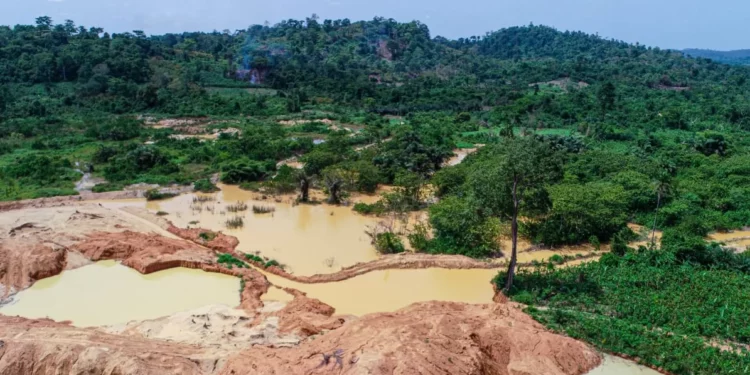A Rocha Ghana Calls for Sweeping Reforms to Protect Forests
A Rocha Ghana, an environmental advocacy group, has issued a stark warning to the government, urging it to take decisive action to protect the country’s dwindling forest reserves. Marking the International Day of Forests, the organisation is calling for the full repeal of Legislative Instrument (LI) 2462, which opened forest reserves to mining, rather than what it describes as a “theatrical” amendment that does little to prevent large-scale destruction.
The group argues that without a complete overhaul of environmental policies, only 10% of Ghana’s forest reserves will remain intact within the next two decades, leaving future generations to deal with the consequences of deforestation, biodiversity loss, and water scarcity.
Rising Environmental Risks
Ghana’s forests underpin vital economic and social ecosystems. The Atewa Range Forest, for instance, serves as the primary watershed for the Densu, Ayensu, and Birim rivers, supplying water to over five million people, including residents of Accra. Yet, deforestation caused by mining, illegal logging, and agricultural expansion continues at an alarming rate.
“Forests are more than trees; they are critical to our national food security, water supply, and economic stability,” A Rocha Ghana said in a statement. The group points to data from the UN’s Food and Agriculture Organization, which shows that nearly one billion people globally rely on forests for their nutritional needs, energy, and income generation.
Policy Failures and Corporate Responsibility
Beyond calling for the repeal of LI 2462, A Rocha Ghana has proposed a series of reforms, including:
- Declaring Atewa Forest a National Park, developing ecotourism as an alternative revenue stream.
- Banning mining in all protected areas, tightening regulation and enforcement.
- Strengthening conservation measures, including reforestation of mangrove forests.
- Protecting urban green spaces, such as the Achimota and Solo forests, to counter rising pollution and urban sprawl.
Environmental activists argue that the government’s policies have failed to deter the destruction of protected areas. Weak enforcement has emboldened illegal miners, while corporate interests in extractive industries remain largely unchecked. A Rocha Ghana also warns that without urgent intervention, Ghana’s long-term economic growth will be at risk, as natural resources underpin sectors such as agriculture, tourism, and energy.
Balancing Growth and Sustainability
Ghana’s extractive industry remains a key contributor to GDP, with mining alone accounting for over 6% of economic output. However, the long-term economic implications of environmental degradation are beginning to weigh on investor sentiment.
“There is a growing recognition that sustainable business practices and environmental conservation are not just ethical imperatives but economic necessities,” an industry analyst noted.
With international markets increasingly prioritising environmental, social, and governance (ESG) factors, Ghana’s failure to adopt sustainable policies could have wider repercussions, including restricted access to foreign investment and trade opportunities.
Government at a Crossroads
A Rocha Ghana’s demands come at a time when governments globally are under pressure to align with climate goals while sustaining economic growth. The group insists that Ghana’s policymakers must do more than make pledges—they must take decisive action to ensure that the country’s forests are preserved for future generations.
As deforestation accelerates and environmental concerns mount, the government faces a critical decision: maintain the status quo and risk long-term instability, or implement bold reforms to ensure sustainable growth.







